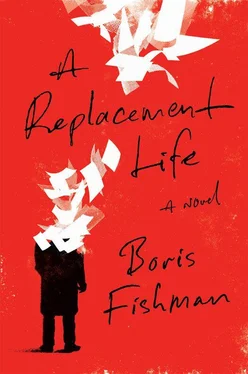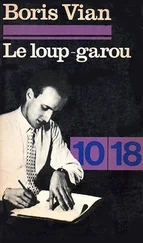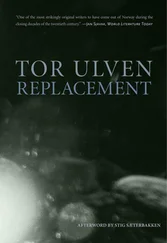“You’re still giving us our tales of woe and deceit?”
“Those very same,” Slava said.
“And what happens when it’s all over?” Israel said. “The deadline’s next week. What do you do at that magazine of yours, anyway?”
“If some small newspaper somewhere makes a mistake, we make a joke about it.”
“We had that in Russia, too. The capital likes to laugh at the provinces. Makes it feel like the capital.”
Slava shrugged. That work seemed so remote. After submitting the fabricated entries for “The Hoot,” Slava returned to properly sourced items, though largely because he’d hit a lucky streak and, for a week or two, the flubs were finding him. But he was dry again, and in the past two weeks, he had slipped in a couple of inventions. It didn’t matter. Slava’s heroic bulwarking of the national decline of small-town newspapers through the invention of the Rinkelrinck (Ark.) Gazette had earned notice neither in Arkansas nor Century .
“I was going to heat up some soup for us,” Israel said. “From a can but excellent.”
Slava saw Israel climbing into the cupboard where the synagogue’s gifts collected, withdrawing a can of soup too large for one — what he lacked in human variety, Israel made up for soup-wise: carrot ginger, black bean, ten-vegetable — and slurping alone in the falling light outside his ground-level window.
“Next time,” Slava promised.
“You said that last time,” Israel said, acquiring a pained expression. Slava felt a familiar wave of guilt. Israel cocked his eyebrows. “Ha! Take it easy, I’m kidding. Slow on the uptake, you are.” He clapped Slava on the shoulder. “Listen, what is your attitude toward presents?”
“Presents?”
“Presents. Good times, laughter, a long table, a bottle or three. You’re a heavy one.”
“When I want a good time, I call you to hear a compliment.”
“Self-pity flatters no man. I want you to take this money back. And have a good time.”
“How many months did it take you to collect that amount?” Slava said.
“This is the use that would make me most satisfied.”
For a third time that evening, Slava’s hand closed around the accursed envelope.
Slava dragged the ton of himself home. On the subway, he tried to jot down ideas for Lazar’s letter, but he had none. The old man was right — what had happened to him (labor battalion, infantry, Stalingrad, hearing) was useless. Also, Slava was out of ideas. Every single item that Slava had scratched into his notebook from the history books had a line through it.
Eliyahu Mishkin, head of Judenrat — no, Epstein has done.
45 Jews roped together and ordered buried alive by 30 Russian prisoners. The Russians refuse. All 75 killed.
Last handful of surviving Jews when Red Army liberates.
Himmler nauseated by witnessing shooting of 100 Jews. Bach-Zelewski says it was “only a hundred.” This has to be done more efficiently — more humanely, Himmler says. For the Germans, but also for the Jews. (!) Poison gas arises from this… But this won’t do, how would an inmate know any of this?!
The coarseness of the last entry forced up a nauseating taste in his throat. Was he a monster, the details of death merely the instruments of a story, kindling for a vocation he didn’t have the talent to practice another way? However, those details made for good stories — stories that stayed with him days after he’d written them, and would earn money for sufferers. What was coarse, then? When he abandoned his grandmother — that was coarse. When he agreed to stop at undetailed reverence and inquire no further about her — that was coarse. Perhaps one becomes aware of one’s coarseness only when it’s too late to do anything about it: Isaac Newton’s little-known Fourth Law of Motion, Pertaining to the Maneuvers of the Soul.
What was coarser, to revere someone falsely for sainthood, or to know someone’s sin but intimately? And if you couldn’t know, then invent. Slava had not planned to have his grandmother stare Shulamit into suffocating her baby. (She hadn’t, had she? He didn’t answer.) Grandmother was fierce, everyone said, and he was trying to make her fierce, but then she wriggled out of his hands and started staring at Shulamit in that basement. (Did that mean Grandmother would have suffocated her own child?) If you wanted to write a good story, the facts had to become a story’s instruments. You couldn’t write without being coarse to the facts.
Slava noticed a cyclist staring at him from several seats away. In fact, he had been staring for quite a while, Slava noted belatedly. As soon as Slava looked back, the cyclist turned back to his phone. When had he gotten on? The same stop as Slava, Slava was suddenly sure. Again, his heart started going. “Twenty-five-year-old suffers heart attack on the D train. At an age when others are swaddling children and commanding platoons under Stalingrad, he is felled by anxiety at being pursued for a crime. ‘He wet his underpants for no reason, that one,’ Yevgeny Gelman, a philosopher, said from a low stool.”
They stormed into Fifty-Fifth Street. Slava kept track of the cyclist out of one eye. The train took an eternity to come to a halt. Finally, the doors opened. Slava waited, his heart in his throat. Wait, wait, wait. The conductor began to announce the next stop. Wait. The doors dinged, signaling they were about to close. Now! Slava barreled from his seat and out onto the platform, the doors sliding closed behind him, no time for the cyclist to pursue him. Slava, a rookie, could not resist turning back to gloat at his pursuer as the train pulled away, but the cyclist was absentmindedly chewing on a fingernail.
Slava sat on the platform, alone, his head in his hands. He took out his cell phone, called his mother, still at the Rudinskys’—now she and Aunt Lyuba were best friends, now they’d go long into the night — and asked for his grandfather.
“You making peace?” Slava said.
“Schnorrers.”
“Go into the kitchen, please,” Slava said. He waited until his instructions were heeded. “How long have you been charging?”
“It’s all for you.”
“I don’t want it.”
“Calm down. They’re going to get ten thousand euros, what’s five hundred the cost?”
“So you gave Lazar a break? Two-fifty.”
“Goodwill.”
“I don’t want to do this anymore,” Slava said.
“It’s almost over. The deadline is next week.”
“It’s not the money.”
“Now you don’t want to do it? You liked it fine five minutes ago. When you say you’re going to do something, you have to do it to the end. That’s what a man does. So, what, you’re not going to do Lazar’s?”
“Give his money back.”
“I’m not giving his money back.”
“These people hate you. Because you do— this .”
“Who hates me? They envy me. They wish they could do it.”
“That’s not the truth.”
“Who tells the truth.”
“That’s the truth.”
“How did it go with Vera?”
“They dressed her like a doll for me.”
“So, she looks after herself. What she does— piar , what is that?”
“I don’t know how to explain it,” Slava said. “It’s like advertising. The shampoo commercial with the woman whose hair is like after electroshock? And then she’s twirling with the umbrella?”
“Vera sells shampoo?”
“No. I don’t know. It’s just an example.”
“There’s a nice girl, Slavik.”
“She wants to reunite you — that’s all she wants. She’s obsessed.”
“My heart aches, Lazar is so sick. Your grandfather is a rock compared to these guys.”
Читать дальше











